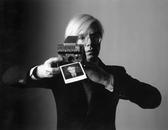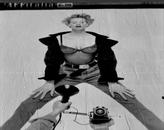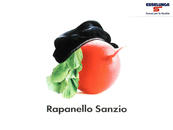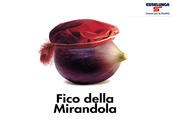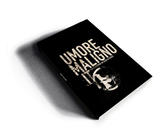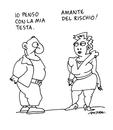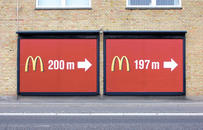What the world deserves
I often wonder what are the fundamental skills/experiences of a young (and not so young) graphic designer with the intention of becoming an art director. I ask myself this because I think it's what's exactly what young (and not so young) graphic designers with the ambition of becoming an art director are missing, more or less evidently. They are missing a strong cultural base and a relative, inexhaustible curiosity about the issues and problems that been raised in Western culture for centuries (and which by their very nature often can’t be resolved - and perhaps this is why they seem useless or even harmful to many.) I am talking about culture, or art, literature, science, poetry, music, philosophy ... I am talking about general knowledge, non-specialist. Of ancient knowledge. Knowledge that allows for a dialectical approach to outstanding questions that can’t be resolved quickly; knowledge that is useful to framing complex issues. Harbingers of nontrivial solutions, which are actually what is asked of people in this profession. Interests, knowledge and the tools to widen one’s ability to find alternative solutions and ask the difficult questions, questions that introduce dialectical dialogue.
I say this loud and clear not to be misunderstood: schools churn out graphic designers on the edge of being ridiculous. I speak of schools that I learned about thanks to their alumni who send me resumes and present themselves for job interviews. These schools are designed to prepare technicians, more like mediocre paper pushers than creative designers with artistic ambitions. The type of education that prepares students for a specific position in our industry: the graphic executer. Unfortunately, the education one receives is the same whether you intended to be an executer (someone who carries out specific orders) or if you aspire to become an art director. It’s an aberration. It’s as if the education of a business manager were the same of a machine operator, or that of a fashion designer were the same of the salesperson that sells her designs. Of course there are exceptional cases where, by virtue of extraordinary talent and desire, a salesperson can become a great designer, or a machine operator can climb the corporate ladder, but they are exceptions, special cases. And a serious school does base its success on exceptions.
He says: it’s easy to criticize, easy to insult us, but after all these programs were created by competent people who have done nothing but satisfy specific needs. I do not dispute their good intentions, but would rather discuss the superficiality and gullibility of those who continue to rely on the work of others rather than come up with a creative solution of their own. All this must be fought with force and even with some (verbal) violence simply because the reality is the exact opposite. Technical ability is relatively easy to acquire in a short time. However, the intellectual management of our business is most complex and daunting that you imagine because, as I've said many times, our main responsibility is to constantly resolve different types of problems, giving them a concrete, dynamic and rational form, which can be understood by all. It is difficult intellectual work based on sophisticated conceptual, verbal, iconic, mnemonics, and symbolic issues. Issues to bring together and make consistent. And to do this you need a certain innate, mental agility but also a cultural foundation that is able to enliven and invigorate this elasticity. The curriculum of a serious school should be based on philosophy, the history of philosophy and all aspects that connect philosophy to the sciences in these centuries. Naturally, it should also include aesthetics, as it is an indispensible foundation, as well as sociology and semiotics. The history of ideas, history of design. An approach to cognitive neuroscience. And then the art, all of it. With particular attention to contemporary art. It should extensively address typography, film and music, poetry, a whole lot of poetry. And lastly, it should focus on the technical aspects of graphic design, mass communication and marketing, in addition to new technologies. These subjects should occupy only a small part of the curriculum because of a strong cultural foundation would make learning them even easier.
Take for example the current situation in Italy: I would advise a young man who wants to one day become a graphic designer to attend a classic high school; then independent study to fill in the gaps, the subjects and issues not present in the high school curriculum. I suggest independent study for people who do not want to (or can not) waste time. Otherwise, for the sake of the piece of paper and spending time and money, I suggest enrolling in a university and choosing a major related to communication, even if they are poorly designed and dispersive. You can also enroll in a course of solid graphic design that is focused upon subjects such as computer graphics and typography. It’s a rather adventurous path, but necessary for forming a rock-solid foundation. But any graphic art, professional, or technical school for middle school graduates should be avoided like the plague.
I invite everyone to look around. If you notice, from the moment you wake up to when you go to bed, you surrounded by things that have been designed (objects of design, graphic design, advertising, publishing, packaging, signs ...). They are everywhere, in everyone’s life, every day. Now ask yourself how much ugliness is around you. You’re forced to respond a lot, too much. And much of it is our own fault. First of all, we were not able to require institutions to implement serious courses of study, which would ensure at least a basic foundation. But it is not entirely our fault: everyone from the janitor to the president thinks of graphic design as a marginal industry. It is not taken very seriously, especially in terms of monetary retribution. So perhaps we give back to the world (from the janitor to the president) that which he deserves (improperly underestimating them).
But I will continue to struggle against the current, in hopes of giving the world something better, whether it deserves it or not.
03/07/2012 Filippo Maglione



